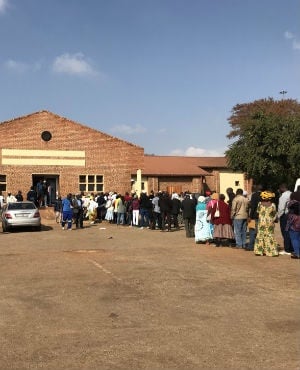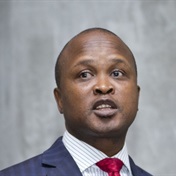
The public hearings on expropriation of land have revealed the ugly side of our society, namely the growing level of political intolerance we harbour towards each other as a nation.
Since the issue of land has come up in the public discourse, South Africans have been divided into those who unreservedly support expropriation of land without compensation and those who stand against this idea.
The hearings were meant to solicit views from the broader nation regarding how they feel about the idea of expropriation of land without compensation. Instead, the hearings have thus far become a referendum on the idea.
What's quite interesting, however, is how political leaders have also failed to rise to the occasion and create a viable environment where communities get to air their different views about the issue.
Political leaders – parliamentarians, in fact – have also assumed non-compromising positions on the matter and have not assisted much in steering communities towards a viable debate on the land issue.
There is no escaping the reality that land is an emotional and potentially divisive issue. However, one expected to see some level of nuance and tolerance by political leaders as they guide ordinary citizens in discussing the matter during the public hearings.
Instead, political leaders were going at each other in a manner that made it difficult to tell who the leaders were and who were the impressionable followers.
The reality is that an environment of suspicion and fear have prevailed where communities were intolerant of each other's position on the matter. This is not surprising because I believe that, at this point in South Africa, those who believe their views reflect the truth on societal issues such as land have demonstrated unwillingness to listen to others.
The idea of a healthy debate characterised by an exchange of ideas is simply dead. It is all about the show of hands: those who agree with me please raise your hands and those who disagree should just simply go hang! That is the attitude towards debate in South Africa at the moment.
What makes things worse is social media platforms – a breeding ground for political and social intolerance. Twitter and Facebook have made it very easy for people to express intolerance without having to take responsibility for their remarks. Social media is meant to facilitate and allow for a freer exchange of ideas without the interference of other agendas or special interests. But experience shows that social media platforms are largely a breeding ground for bullies and those who are set to curb diversity of ideas.
The growing phenomenon of political and social intolerance is not particularly a South African problem; it is a global challenge. Bullies and bigots thrive, while those who wish to engage openly in the world of ideas are at times easily dismissed as proponents of fake news.
What's considered exciting messages on Twitter are not ideas that are based on tolerance and willingness to listen to others, but rather extremist ideas that are dismissive of others. Tolerant and moderate Twitter messages do not trend; it is the extreme ones that gain more attention and following.
Humanity seems to be more appreciative of extremism these days while being moderate is seen as a sign of being indecisive and weak.
Those who are committed to liberal democratic values such a diversity of ideas should be worried about the rise of extremism that masquerade as radicalism. Our society is showing a dangerous fascination with strongmen who are taking centre stage in our politics. The problem of strongmen, as we see them also trying to shape the world order, is that they essentially believe they hold the absolute truth about society.
Their ideas cannot be challenged and questioned. Unfortunately, the liberal democratic value system seems incapable of offering an attractive alternative value system that counters the momentum of strongmen at this point. This is worrying, and it is the road to serfdom.
- Ralph Mathekga is a Fellow at the SARChI Chair: African Diplomacy and Foreign Policy at the University of Johannesburg and author of When Zuma Goes and Ramaphosa's Turn.
Disclaimer: News24 encourages freedom of speech and the expression of diverse views. The views of columnists published on News24 are therefore their own and do not necessarily represent the views of News24.




 Publications
Publications
 Partners
Partners






















